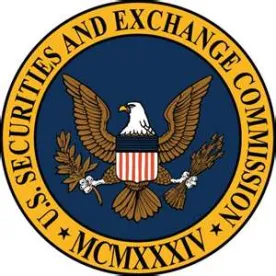The dust has settled on the 2020 election, and the Biden administration has begun pressing forward with its policy objectives. Critical to achieving such objectives is the Democrats’ control of both the House of Representatives and the Senate, albeit by the narrowest of margins after the Democratic senatorial candidates won their run-off elections in Georgia. As a result of the Georgia elections, Vice President Harris will be able to cast the tie-breaking vote in the case of a deadlock in the Senate. What does the change in administrations mean for SEC enforcement?
SEC Leadership
As part of the transition, Chairman Jay Clayton has already left the Commission, and President Biden has nominated Gary Gensler to replace him. Mr. Gensler, who served as chairman of the Commodity Future Trading Commission (“CFTC”) under the Obama Administration, was widely perceived as an aggressive CFTC chairman during the financial crisis. At that time, this aggressiveness eased progressives’ concerns that President Obama was appointing a Wall Street executive (Gensler is an alumnus of Goldman Sachs) to head the CFTC. Now, opposition to Gensler is more likely to come from conservatives, who may regard him as an overzealous enforcer. Mr. Gensler’s Senate confirmation process could be contentious.
Meanwhile, the Commission is being led by acting Chair Allison Herren Lee. Chair Lee is a long-time SEC enforcement attorney who also acted as counsel to Commissioner Kara Stein before assuming her position as a commissioner in mid-2019. She is regarded as pro-enforcement and will be an ally of Mr. Gensler should he be confirmed as Chairman.
In the Division of Enforcement, the two co-Directors, Steven Peikin and Stephanie Avakian, have left in recent months. Following their departures, former Deputy Director Marc Berger served as Acting Director for a short period. Acting Chair Lee has now appointed former Associate Director Melissa Hodgman as Acting Director and Kelly Gibson as Acting Deputy Director. Presumably, if Mr. Gensler is confirmed as Chairman, he will appoint an Enforcement Director whom he trusts to carry out his vision for enforcement.
Expected Changes
In general, under the new SEC leadership, market participants can expect:
A. A more assertive, pro-enforcement attitude
A majority of commissioners will be strongly pro-enforcement. The resulting point of view favoring aggressive enforcement will permeate many aspects of the SEC’s work, including staffing. Expect to see the Division of Enforcement, as well as other divisions, invigorated with increased hiring.
This pro-enforcement shift is not to say that the Clayton Commission was anti-enforcement; it just means that certain areas will be re-prioritized. [1] And the overall culture will be more pro-enforcement.
B. Digital currencies and blockchain technology
Assuming Mr. Gensler is confirmed as SEC Chairman, he will bring broad and deep experience and knowledge of this area. Mr. Gensler is an acknowledged expert in financial technology (“FinTech”), and has most recently taught courses on the topic at MIT’s Sloan School of Management. [2] Of course, Mr. Gensler also wrestled with such issues as CFTC chairman. Industry participants can expect, at a minimum, increased understanding of FinTech, virtual currencies and blockchain technology, as well as an effort at regulatory clarity for digital assets. Mr. Gensler might find an ally on these topics across the aisle in Republican Commissioner Hester Pierce, dubbed by some as “Crypto Mom” for her embrace of virtual currencies and blockchain.
C. Enhanced civil penalties against public companies
There has been a long-running debate about the wisdom of levying substantial penalties on public companies. Namely, do large penalties simply punish the very shareholders who may have already suffered due to mismanagement or fraud? Or do sizable penalties send a strong anti-deterrent message to the markets? It is safe to say that the latter view will hold sway much more than under the prior administration.
D. Expanded ability to seek disgorgement of ill-gotten gains
As we wrote in a recent post on the extended limitations period for SEC disgorgement, [3] the National Defense Authorization Act of 2021 expressly authorized the SEC to seek disgorgement. Previously, disgorgement was available as an equitable remedy, but was not statutorily authorized. That has now changed.
Perhaps more important, Section 6501 of the Act doubled the statute of limitations for scienter-based disgorgement actions – i.e., those involving intentional or severely reckless misconduct, from five years to 10. The SEC’s new authority to reach back as far as a decade for purposes of disgorgement will greatly expand the use of and amounts recovered under this remedy.
E. Increased emphasis on Wall Street regulation and enforcement
As noted above, the Clayton Commission was focused on protecting retail investors and was perceived as less aggressive toward Wall Street. This is likely to change. A key tool in identifying and addressing systemic abuses is the SEC’s cooperation and coordination with other agencies and law enforcement. Mr. Gessler’s prior service at the CFTC should be expected to enhance these efforts and promote open communication between two important financial regulatory agencies. In addition, the financial regulators have reason to believe that U.S. Attorney’s offices in the Biden Department of Justice will be less encumbered by political issues when addressing referrals for white-collar crimes.
F. Stricter enforcement of regulations on private funds and investment managers
This area will itself be the subject of a future post. Without going into detail on this topic, we note that investment managers and private funds can expect heightened scrutiny under the Biden administration. Two areas of inquiry will be valuations of client assets and disclosure of conflicts of interest. It will continue to be critical to document the process by which firms value assets, and to fully vet and disclose potential and actual conflicts of interest. Again, stay tuned for more on this topic very soon.
We also note that the SEC adopted well to a remote examination approach. Anecdotal evidence suggests they might actually be more efficient in a remote environment. We expect the exam staff, like the Commission staff as a whole, to be bolstered with new hires.
G. Rededication to insider-trading enforcement
In 2019, the SEC brought 32 insider-trading cases, the fewest in any year since 1996. [4] The number in 2020 edged up almost imperceptibly, to 33 actions. [5] Are these statistics aberrational? [6] Or do they demonstrate de-emphasis of insider trading?
Whatever these numbers mean, increased recent market volatility and economic instability caused by the pandemic have created additional opportunities for insider trading, fueling added interest in insider-trading enforcement. These efforts will feature increased use of data analytics, or, as the SEC describes them, “tools to detect suspicious patterns such as improbably successful trading across different securities over time.” The SEC will also rely on the market-surveillance capabilities of the stock exchanges, FINRA, and the Chicago Board of Options Exchange, to name a few.
Companies would be wise to review and update insider-trading policies, including policies and procedures addressing trading windows. And companies should focus on situations in which employees have multiple roles and become exposed to material nonpublic information in one role or another.
H. A return to “broken windows” enforcement?
While it is doubtful that the SEC will again embrace the term “broken windows,” there are likely to be more cases involving non-fraudulent conduct and even some without investor losses. Such cases will feature allegations of negligence, deficient internal controls, and non-compliant record-keeping – the policy goal being that enforcing lesser violations incentivizes companies to take compliance seriously.
Market participants should painstakingly document the processes of reaching accounting and disclosure judgments, and be prepared to defend those processes. Even if the judgments are “wrong,” having sound processes in place will demonstrate that compliance is a core value and help minimize the adverse effects of an SEC inquiry. Likewise, strong compliance dictates that companies regularly assess their control environments.
I. Cooperation credit
How much credit does a registrant get for cooperating with the SEC? This is difficult to quantify. But early detection of compliance issues, coupled with thorough investigation and reporting of potential violations, can help mitigate exposure to the SEC. Companies would be well-advised to follow the SEC’s current guidance on cooperation and the 2001 Seaboard Section 21(a) report, [7] which provides a structure for assessing varying degrees of cooperation.
J. Whistleblower complaints
Late last year, the Commission voted 3-2 to amend the Whistleblower Rule to enhance efficiencies in review whistleblower award claims. The amendments include a provision making it easier to weed out frivolous or patently unmeritorious claims that might otherwise consume too much time and energy to process. The amendments also create a presumption that certain whistleblowers with potential awards of less than $5 million (the vast majority of whistleblowers) will receive the statutory maximum award.
The controversial part of the amendments, however, authorizes the Commission to consider the dollar amount of the award when determining the appropriate reward. Whistleblower advocates argued against this provision as being designed simply to reduce the amount of the largest whistleblower awards. In other words, the Commission has discretion to reduce a whistleblower award simply due to dollar amount, even if the whistleblower did everything “right” at great personal risk, namely, the risk of losing a lucrative, prestigious career. Advocates of the reforms, on the other hand, view the provision as necessary to rein in some of the eye-popping whistleblower awards in recent years. There is simply no good reason to award a whistleblower tens of millions of dollars, as has happened in multiple cases.
The two “no” notes on the whistleblower amendments were cast by Acting Chair Lee and Commissioner Caroline Crenshaw, both Democrats who remain on the Commission. If Mr. Gensler is confirmed as Chairman, his history of championing the whistleblower program at the CFTC may foreshadow his view of the amendments. Do not be surprised to see the Commission revisit the more controversial part of these amendments.
This is all the more reason for market participants to contact their attorneys and consider self-reporting. It is not ideal to be investigated by the SEC where the investigation is prompted by a whistleblower complaint. One question on the minds of the SEC staff will be, “Why didn’t you contact us and report this issue, rather than having us hear about it from a whistleblower?”
K. Conclusion
The coming year is likely to bring an increase in enforcement activity. Market participants should fortify their compliance efforts, not only to prevent violations, but to demonstrate compliance as a core value. No compliance system can eliminate all problems, but robust compliance can help demonstrate that a violation was neither deliberate nor the product of inattention to compliance.
[1] For example, Chairman Clayton was keenly focused on protecting retail investors, namely, those who are victims of offering frauds, Ponzi schemes, and the like. He was perceived as less aggressive with public companies, Wall Street abuses, and insider trading. Priorities are likely to shift toward these areas.
[2] Two of these course are available for free on MIT OpenCourseWare: https://ocw.mit.edu/courses/sloan-school-of-management/15-s12-blockchain-and-money-fall-2018/index.htm; https://ocw.mit.edu/courses/sloan-school-of-management/15-s08-fintech-shaping-the-financial-world-spring-2020/
[4] https://www.npr.org/2020/08/14/901862355/under-trump-sec-enforcement-of-insider-trading-dropped-to-lowest-point-in-decade; https://www.sec.gov/files/enforcement-annual-report-2019.pdf
[5] https://www.sec.gov/files/enforcement-annual-report-2020.pdf
[6] 2020 numbers were down across the board, doubtless due in part to the pandemic.
[7] https://www.sec.gov/spotlight/enforcement-cooperation-initiative.shtml; https://www.sec.gov/litigation/investreport/34-44969.htm





 />i
/>i

